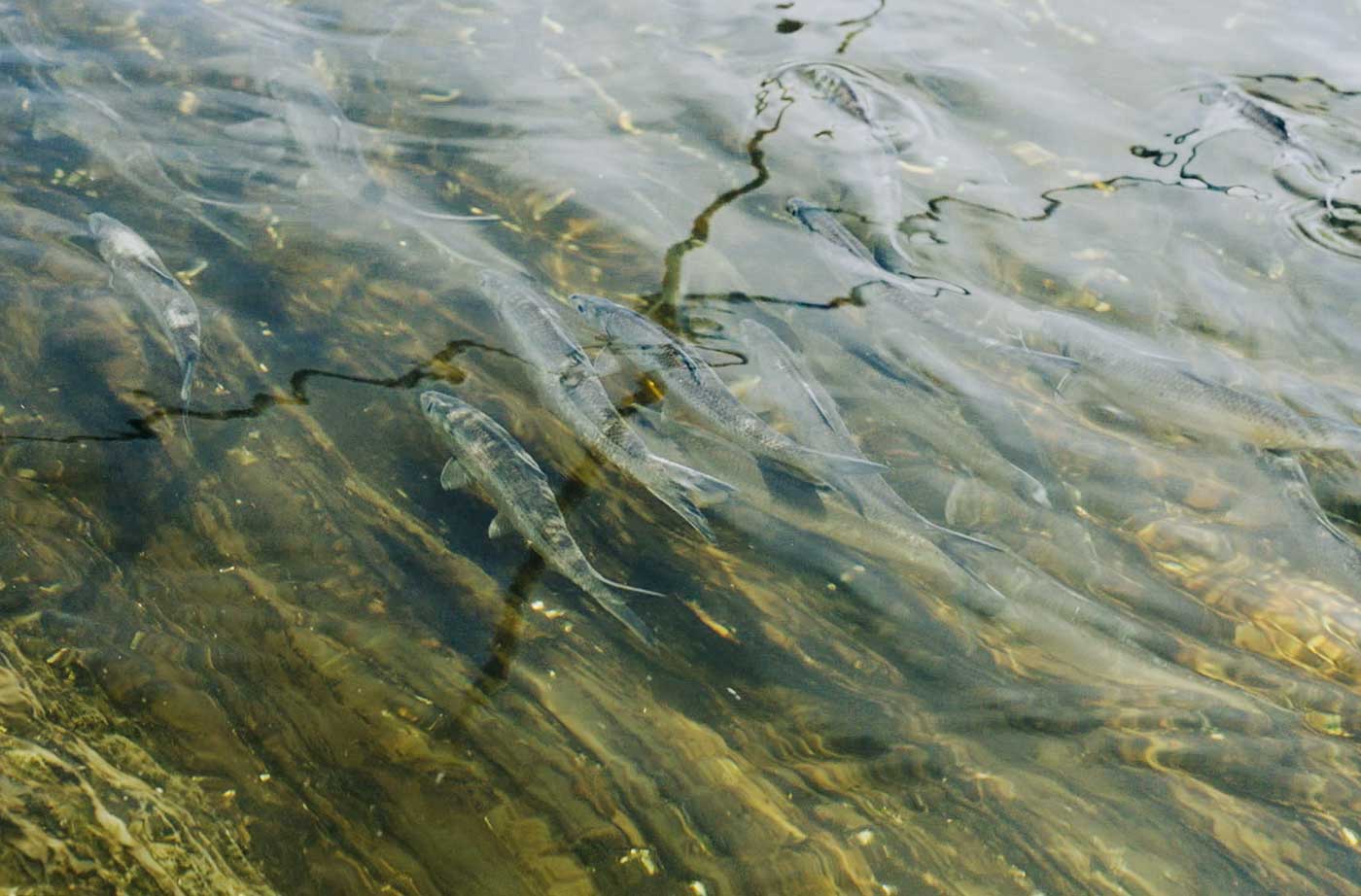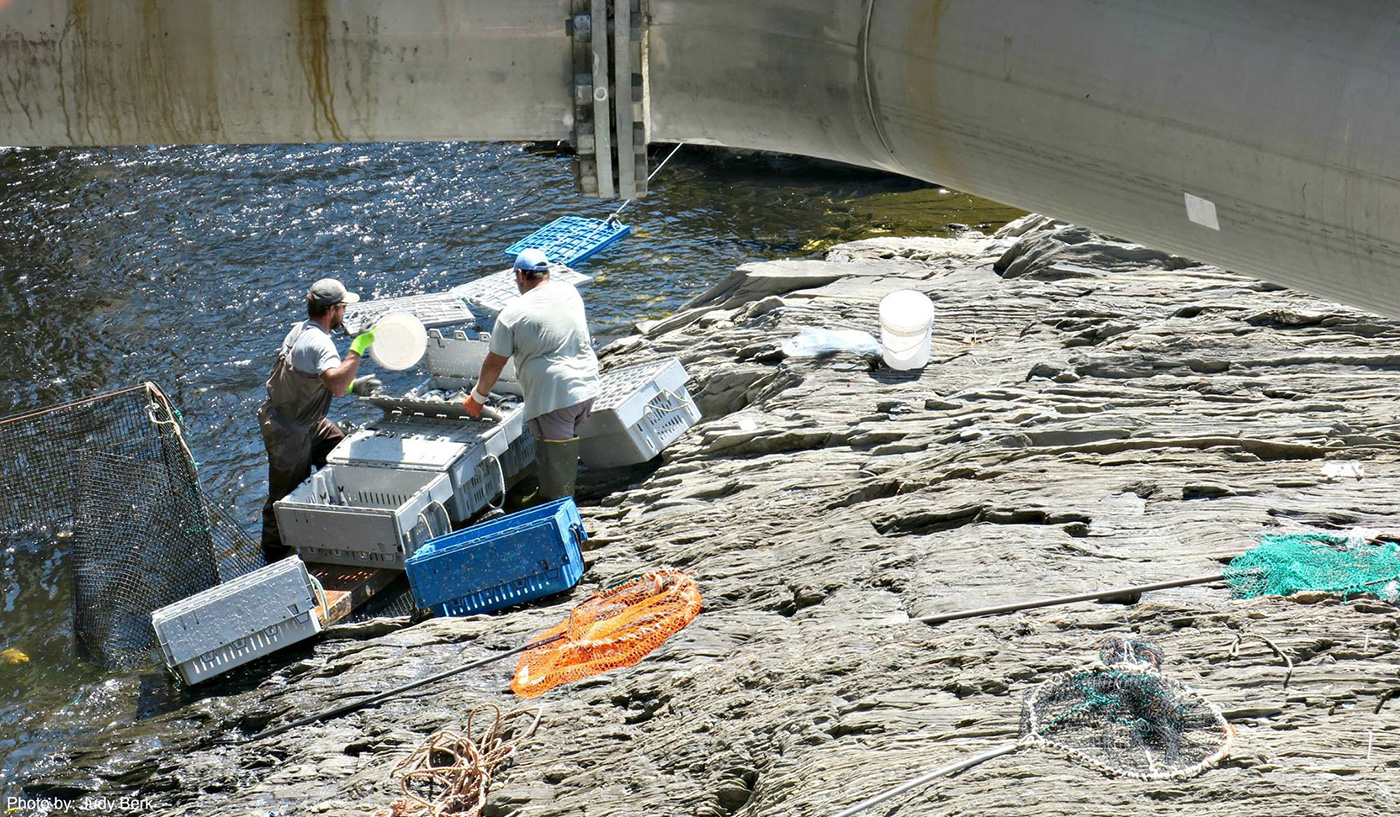At the end of May we were lucky enough to join our colleagues on a field trip to the Benton Falls Dam on the Sebasticook River to see the alewife (river herring) run. Alewives spend the majority of their lives in the ocean and only follow freshwater routes to spawn in interior lakes and ponds Read More
Restoring Alewives in Maine Rivers
Throughout our history, NRCM has worked to support healthy fish populations returning to Maine’s rivers, and we’ve had big victories. With removal of the Edwards Dam in 1999 and the Fort Halifax Dam in 2008, more than two million alewives (river herring) now return to the Kennebec River each spring. The Penobscot River Restoration Project, completed in 2016, is also providing tremendous benefits for alewives and the full range of fish and wildlife in the Penobscot River and throughout the Gulf of Maine.
Celebrating Maine’s Clean Water Champions
Marking the 50th Anniversary of the Clean Water Act Remarks by Pete Didisheim, NRCM Interim CEO, at a Clean Water Act event on September 29th in Lewiston, Maine, along the banks of the Androscoggin River Greetings and welcome to this celebration of the 50th anniversary of the Clean Water Act. We are now at the Read More
LD 817, Advance Restoration of Penobscot
Senator Carson, Representative Tucker, and members of the Environment and Natural Resources Committee. My name is Nick Bennett, and I am the Staff Scientist for the Natural Resources Council of Maine (NRCM). NRCM is Maine’s largest environmental advocacy group with more than 20,000 members and supporters. I am testifying in support of LD 817. As Read More
Restoration of Alewives in Maine Rivers is No Fish Tale
Some animal migrations are large and obvious. I’ve seen many films of giant wildebeest herds moving across the plains in Africa numbering in the hundreds of thousands. I’ve been to South Dakota to hunt the spring migration of snow geese on their way to arctic breeding areas. I stayed in the small city of Aberdeen, Read More
Conservation Projects Have Let ‘Astounding’ Number of Alewives Return to Maine Rivers
By A.J. Higgins Maine Public news story Watch videos. Alewives, or river herring, are making their usual spawning migration to Maine in unusually high numbers this year, thanks in part to restoration efforts and the removal of dams on the Penobscot and Kennebec Rivers. Because they serve as a food source for several fish species Read More
The Return of Alewives to This Bangor-area Stream is an Epic Success Story
By John Holyoke, BDN Staff Bangor Daily News news story BRADLEY, Maine — The old saying about migrating fish holds that during the peak of a run, it’d be possible to walk from stream bank to stream bank on the backs of the fish, and never get your feet wet. While most of us don’t Read More
Plan to Allow Alewives, Eels in Sheepscot Pond Might be Delayed Again
State lawmakers said they want to see management information before the fishway at the Palermo lake is opened. by Jessica Lowell, staff writer Central Maine newspapers news story AUGUSTA — People who live around Sheepscot Pond lined up last week to tell state lawmakers that the lake should not be opened up to migrating alewives Read More
Opposition to LD 1667, An Act To Prohibit the Entry of Anadramous Fish Species into Sheepscot Pond for 3 Years and To Study the Consequences of the Presence of Anadromous Fish in Sheepscot Pond
Senator Cyrway, Representative Duchesne, and members of the Inland Fisheries and Wildlife (IFW) Committee: My name is Nick Bennett, and I am the Staff Scientist for the Natural Resources Council of Maine (NRCM). NRCM is Maine’s largest environmental advocacy group with more than 20,000 members and supporters. I am testifying in opposition to LD 1667, Read More
State Considers Taking Over Dam on Popular Fishing Lake
by Fred Bever Maine Public news story Gov. Paul LePage wants the state to take over a small dam in northern Maine that straddles the border with Canada on the St. Croix River. It’s one option to prevent its total abandonment by the paper company that now owns it. But the proposal is meeting skepticism Read More












